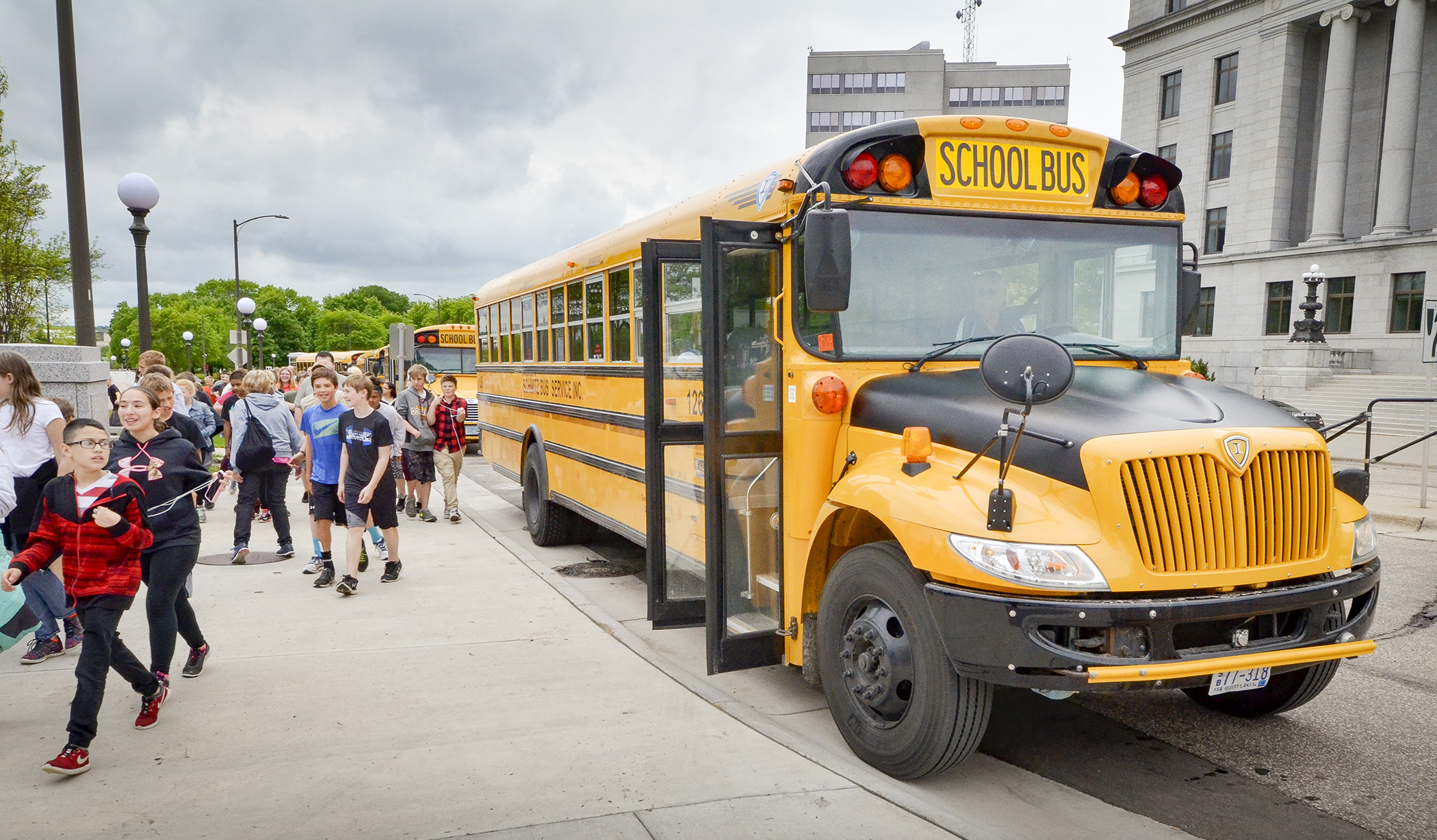Benefits extension sought for school bus drivers, other hourly school workers

“School’s out for summer!”
That gleeful cry from students is anything but for school bus drivers, cafeteria workers, and other hourly school workers who have little or no income while schools are on break.
Many try to find summer work, but if they don’t, they can’t fall back on collecting unemployment benefits, because state law excludes them from doing so.
That’s unfair, says Rep. Emma Greenman (DFL-Mpls), who sponsors HF1054 that would eliminate that exemption.
The bill was held over Monday by the House Workforce and Business Development Finance and Policy Committee for possible inclusion in an omnibus bill. The companion, SF1307, sponsored by Sen. Jason Rarick (R-Pine City), awaits action by the Senate Jobs and Economic Growth Finance and Policy Committee.
The rational for the current exemption, Greenman said, is that hourly school workers have a “reasonable assurance” they will be re-employed when classes resume in the fall.
But the COVID-19 pandemic has changed that expectation, Greenman said, noting that some of these workers have been unemployed for a year or more and have no guarantee that schools will need their services anytime soon.
Other seasonal employees in Minnesota, such as resort and landscape workers, are eligible for unemployment benefits, Greenman said.
“These Minnesotans who drive a bus, prepare school lunches, and assist our kids in classrooms, they deserve that same security as other Minnesota workers,” she said.
The bill would not apply to professional licensed school staff, including teachers, principals, administrators, curriculum specialists, school nurses and librarians.
The majority of hourly school workers are women and people of color, Greenman noted, adding that making the change would help “level the playing field” and help reduce income inequality.
Rep. Jim Davnie (DFL-Mpls) pointed out the inherent sexism in current law.
Denying unemployment benefits for three months of the year to mostly female workers, he said, “is one of the structural ways that we ensure that women earn 69 cents on the dollar that men make.”
Republicans expressed concern about the lack of a fiscal note with the bill, and the Minnesota School Boards Association stated concerns about the bill in written testimony.
“In school districts, unemployment is a reimbursable expense that is recovered from taxpayers in the unemployment levy … property taxes would be increased for our already stretched homeowners.”
Both Rep. Barb Haley (R-Red Wing) and Rep. Keith Franke (R-St. Paul Park) said they would like to hear from the Department of Employment and Economic Development’s Unemployment Insurance Advisory Council before deciding whether to support the legislation.
Rep. Mohamud Noor (DFL-Mpls), committee chair, said the bill has been sent to the council and he expects feedback soon.
Unemployment benefits for high school students
The committee approved another unemployment insurance-related bill, HF1034, sponsored by Noor, and sent it, as amended, to the House Ways and Means Committee.
It would allow high school students to qualify for unemployment insurance benefits if they otherwise meet eligibility requirements. Under current law, high school students are excluded from receiving unemployment benefits.
The companion, SF1044, also sponsored by Rarick, awaits action by the Senate Jobs and Economic Growth Finance and Policy Committee.
Related Articles
Search Session Daily
Advanced Search OptionsPriority Dailies
Speaker Emerita Melissa Hortman, husband killed in attack
By HPIS Staff House Speaker Emerita Melissa Hortman (DFL-Brooklyn Park) and her husband, Mark, were fatally shot in their home early Saturday morning.
Gov. Tim Walz announced the news dur...
House Speaker Emerita Melissa Hortman (DFL-Brooklyn Park) and her husband, Mark, were fatally shot in their home early Saturday morning.
Gov. Tim Walz announced the news dur...
Lawmakers deliver budget bills to governor's desk in one-day special session
By Mike Cook About that talk of needing all 21 hours left in a legislative day to complete a special session?
House members were more than up to the challenge Monday. Beginning at 10 a.m...
About that talk of needing all 21 hours left in a legislative day to complete a special session?
House members were more than up to the challenge Monday. Beginning at 10 a.m...